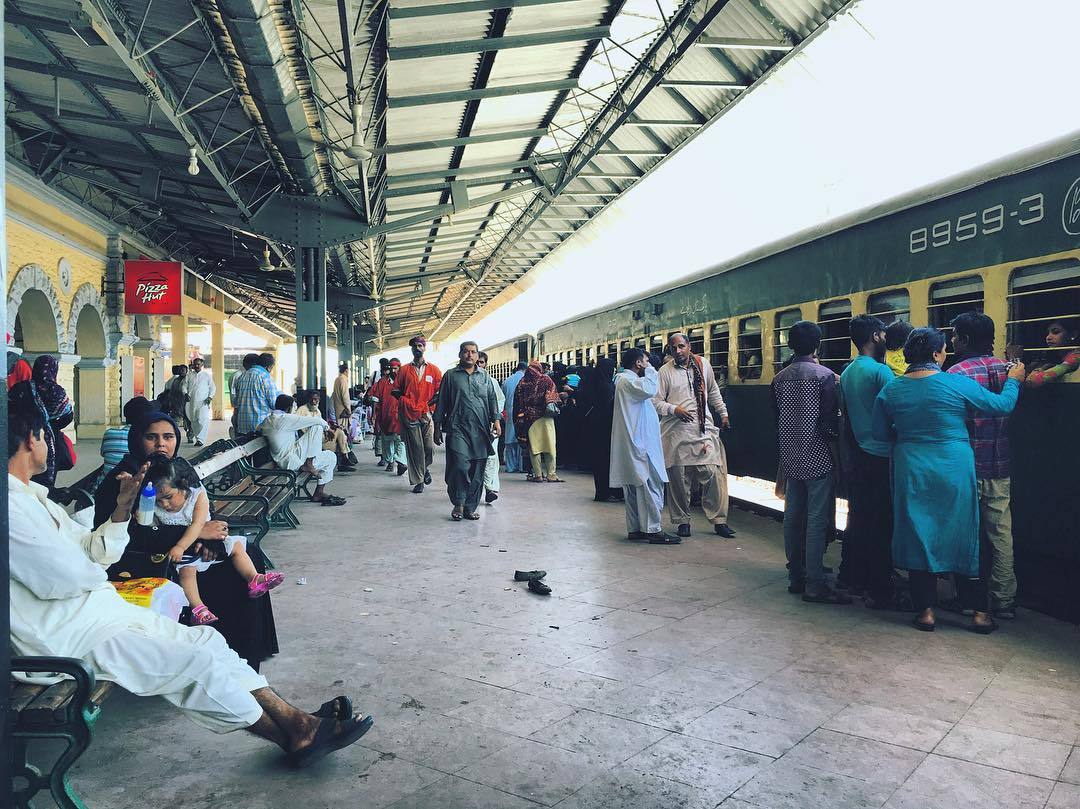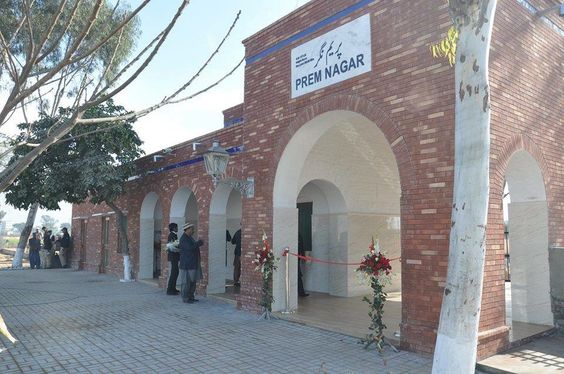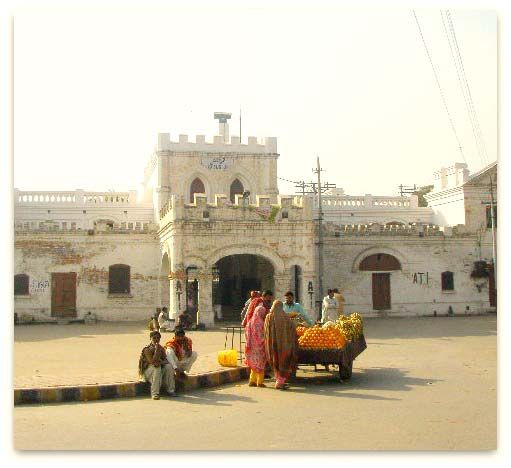How to install the app on iOS
Follow along with the video below to see how to install our site as a web app on your home screen.
Note: This feature may not be available in some browsers.
You are using an out of date browser. It may not display this or other websites correctly.
You should upgrade or use an alternative browser.
You should upgrade or use an alternative browser.
Railway Stations in Pakistan
- Thread starter ghazi52
- Start date
ghazi52
PDF THINK TANK: ANALYST

- Joined
- Mar 21, 2007
- Messages
- 104,413
- Reaction score
- 106
- Country
- Location
Red shirts no more

Porters wearing their new uniform which has been changed after 150 years by Pakistan Railways. —Online
Pakistan Railways has changed the uniform of its porters, switching to green and yellow from the nearly 150 years old red.
For well over 100 years, coolies (porters) in the subcontinent – India and Pakistan – wore bright red shirts (the colour often fades to orange) which made it easier to spot them on the crowded platforms.
On this side of the border, the iconic red shirt has now been replaced with a green shalwar kameez displaying the logo of Pakistan Railways along with and a turban.

Porters wearing their new uniform which has been changed after 150 years by Pakistan Railways. —Online
In the 19th and 20th century, coolie was a term for a locally sourced unskilled labourer, hired by a company, mainly from the Indian subcontinent or South China.
A coolie carries up to 40kg of luggage for a mere sum of Rs30 for a single trip – a backbreaking job where occupational hazards include stress fractures and spinal cord injuries.
Most coolies ‘inherit’ this job from their fathers and uncles – many of whom used to carry the loads for Rs5.
There are no women coolies in Pakistan but in India some ladies have been carrying loads for a living.
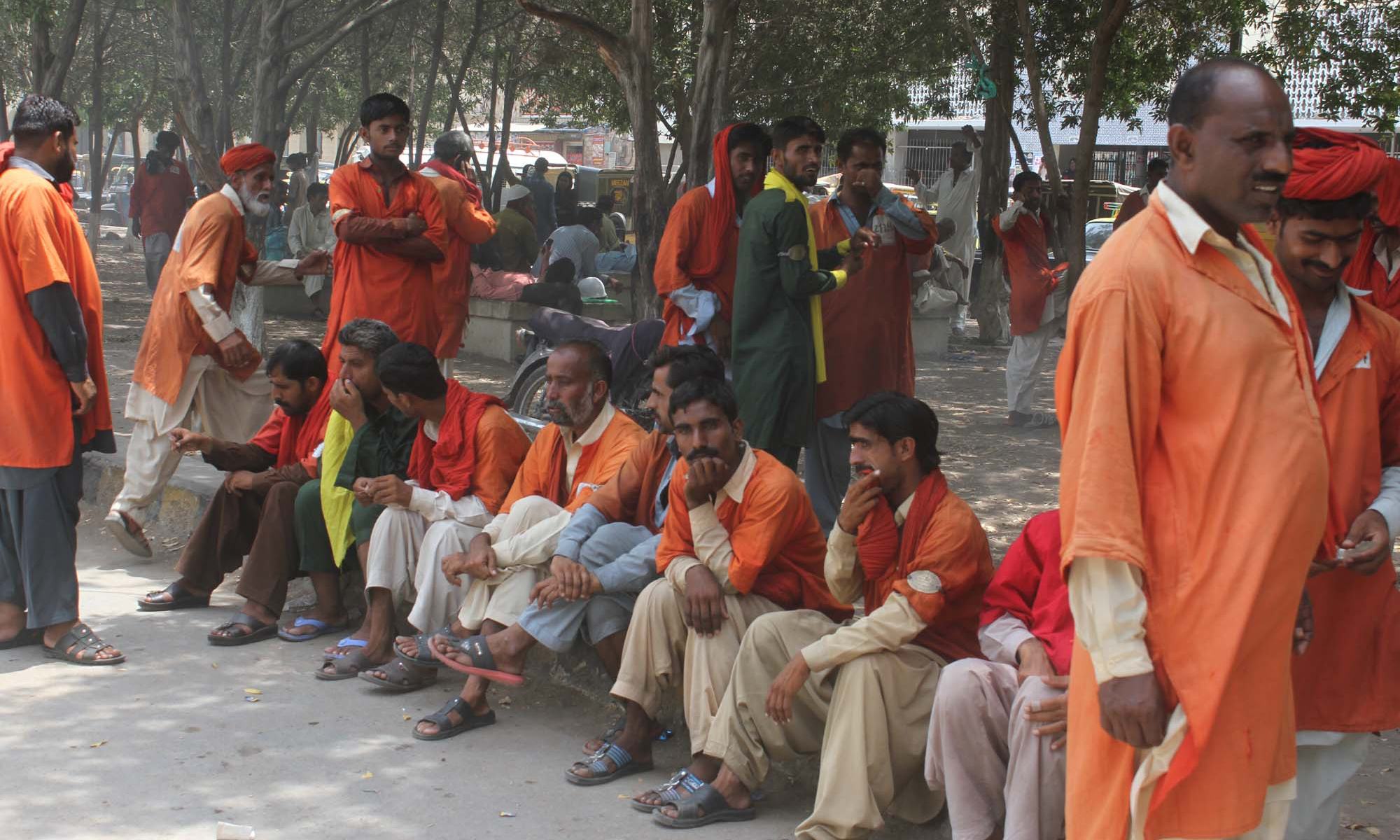
Porters at Karachi Cantt Station are waiting for passengers to carry their luggage to earn money for livelihood. —PPI
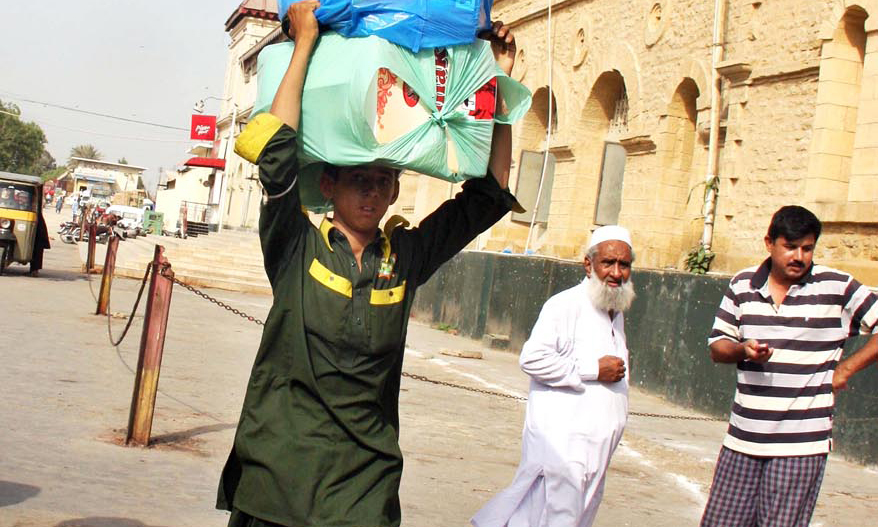
A porter seen carrying luggage of passengers as he wears his new uniform

Porters wearing their new uniform which has been changed after 150 years by Pakistan Railways. —Online
Pakistan Railways has changed the uniform of its porters, switching to green and yellow from the nearly 150 years old red.
For well over 100 years, coolies (porters) in the subcontinent – India and Pakistan – wore bright red shirts (the colour often fades to orange) which made it easier to spot them on the crowded platforms.
On this side of the border, the iconic red shirt has now been replaced with a green shalwar kameez displaying the logo of Pakistan Railways along with and a turban.

Porters wearing their new uniform which has been changed after 150 years by Pakistan Railways. —Online
In the 19th and 20th century, coolie was a term for a locally sourced unskilled labourer, hired by a company, mainly from the Indian subcontinent or South China.
A coolie carries up to 40kg of luggage for a mere sum of Rs30 for a single trip – a backbreaking job where occupational hazards include stress fractures and spinal cord injuries.
Most coolies ‘inherit’ this job from their fathers and uncles – many of whom used to carry the loads for Rs5.
There are no women coolies in Pakistan but in India some ladies have been carrying loads for a living.

Porters at Karachi Cantt Station are waiting for passengers to carry their luggage to earn money for livelihood. —PPI

A porter seen carrying luggage of passengers as he wears his new uniform
The Eagle
SENIOR MODERATOR

- Joined
- Oct 15, 2015
- Messages
- 24,239
- Reaction score
- 258
- Country
- Location
Red shirts no more

Porters wearing their new uniform which has been changed after 150 years by Pakistan Railways. —Online
Pakistan Railways has changed the uniform of its porters, switching to green and yellow from the nearly 150 years old red.
For well over 100 years, coolies (porters) in the subcontinent – India and Pakistan – wore bright red shirts (the colour often fades to orange) which made it easier to spot them on the crowded platforms.
On this side of the border, the iconic red shirt has now been replaced with a green shalwar kameez displaying the logo of Pakistan Railways along with and a turban.

Porters wearing their new uniform which has been changed after 150 years by Pakistan Railways. —Online
In the 19th and 20th century, coolie was a term for a locally sourced unskilled labourer, hired by a company, mainly from the Indian subcontinent or South China.
A coolie carries up to 40kg of luggage for a mere sum of Rs30 for a single trip – a backbreaking job where occupational hazards include stress fractures and spinal cord injuries.
Most coolies ‘inherit’ this job from their fathers and uncles – many of whom used to carry the loads for Rs5.
There are no women coolies in Pakistan but in India some ladies have been carrying loads for a living.

Porters at Karachi Cantt Station are waiting for passengers to carry their luggage to earn money for livelihood. —PPI

A porter seen carrying luggage of passengers as he wears his new uniform
Appreciated, a good change indeed.
Saeed Fareedi
FULL MEMBER
New Recruit
- Joined
- May 19, 2016
- Messages
- 30
- Reaction score
- 0
- Country
- Location
old is much batterPakistan Railway is part of our nostalgia.
Railway station of Quetta, where I was born, raised, and educated.
View attachment 200040

ghazi52
PDF THINK TANK: ANALYST

- Joined
- Mar 21, 2007
- Messages
- 104,413
- Reaction score
- 106
- Country
- Location
A Pakistani female police commando stands guard as Indian Sikh pilgrims arrive at Wagahrailway station near Lahore, Pakistan, on Friday. Hundreds of Indian Sikh pilgrims arrivedin Pakistan by a special train to participate in three-day festival to celebrate the birth anniversary of their spiritual leader Baba Guru Nanak, the founder of Sikh religion, at Nankana Sahib near Lahore.

.The beautiful ---- AbiGum Railway Station.


.The beautiful ---- AbiGum Railway Station.

Lone Ranger
FULL MEMBER

- Joined
- Oct 5, 2013
- Messages
- 654
- Reaction score
- 0
- Country
- Location
Similar threads
- Replies
- 7
- Views
- 661
- Replies
- 14
- Views
- 1K
- Replies
- 1
- Views
- 519
- Replies
- 0
- Views
- 392
Pakistan Defence Latest Posts
-
-
Cabinet approves COAS Gen Asim Munir's promotion to field marshal
- Latest: FourMikeEcho
-
-
Why Pakistan’s JF-17 Thunder Is Outshining India’s Tejas on the World Stage
- Latest: FourMikeEcho
Pakistan Affairs Latest Posts
-
-
Russia Has Delivered MI-35M Assault Helicopters To Pakistan
- Latest: Defense Reader
-
India launches missile attacks on Multiple locations in Pakistan,
- Latest: RaktimChandra



